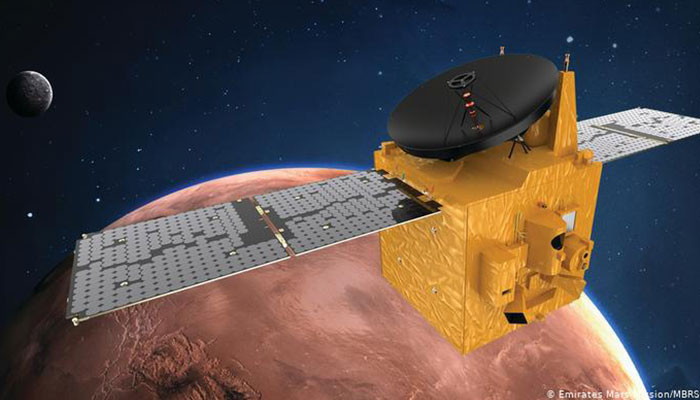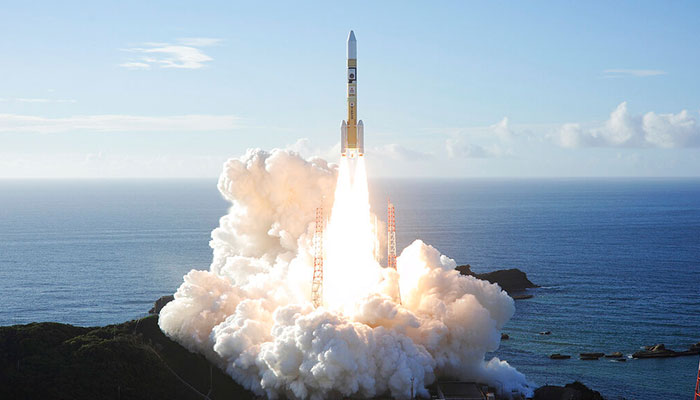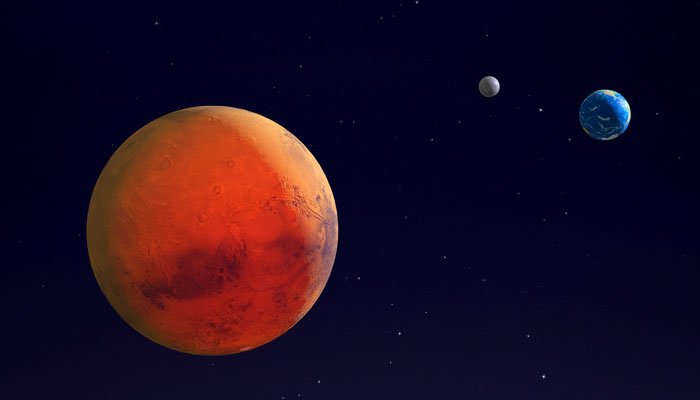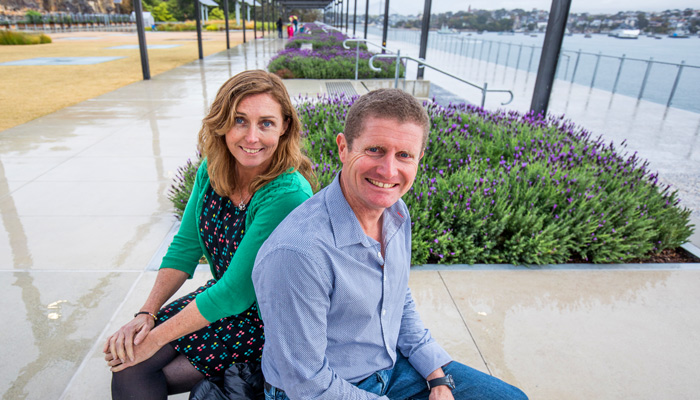The short answer to why we are sending missions to the red planet is summed up in the word 'hope'. Hope is the English translation of Al-Amal – the name of the United Arab Emirates' historic space mission. Their probe successfully launched from Japan on 19 July and is now on a seven-month long, 500 million kilometre flight to Mars.

New frontier: An artist's impression of the Hope probe orbiting Mars. Image credit: Mohammed bin Rashid Space Centre
The UAE probe won’t land on Mars but will orbit the red planet for a Martian year (687 days) and analyse climate and weather patterns. It will study how energy moves through the atmosphere and record aspects such as lofted dust, which influences Mars’ atmospheric temperature.
The probe has the capability to map the Martian atmosphere, using UV and infrared spectrometers, to determine how the atmosphere has lost its water, and further search for evidence of ancient life on Mars – something a lot of the recent missions are addressing.
Within the next few weeks, the US and China are expected to launch Mars rovers (called Mars 2020 and Tianwen-1 respectively) due to land in February 2021 to collect data. There are already eight active missions exploring Mars.
Space research has given us life-changing discoveries that we now use routinely in medicine, transport, home construction and in everyday life.
Underlying these missions, I believe, is hope – hope that by taking on such technical and scientific challenges we can figure out ways to overcome some of the most pressing problems of our time. This will equip us to find solutions to whatever global problems we face on Earth – such as pandemic and climate change.
Satellite data is critical for monitoring the Earth. It tracks human activity for epidemiology, ocean currents and weather systems for weather forecasting, land use and soil for agriculture, groundwater usage and natural hazards. These forms of space monitoring are critical to prepare us to adapt to climate change.
And space research has given us life-changing discoveries that we now use routinely in medicine, transport, home construction and in everyday life.
These include CAT scans, mobile phone cameras, portable laptop computers, the computer mouse, artificial limbs, cochlear implants, memory foam, wireless headsets, home insulation, ear thermometers, lightweight foil recovery blankets, red LEDs and wireless headsets – to name a few.
What's in it for the UAE
Fossil fuel-dependent economies – particularly the UAE and others – are developing space programs because they realise that to maintain relevance into the next century, they need to reposition their countries as scientific and technological powerhouses. These missions then also represent a sharp shift away from oil and other fossil fuels.

Countdown: The Mars probe Hope lifts off from Tanegashima in Japan this week. Image Credit: MHI via AP
Until a decade ago, the UAE had few research universities, to train the technical workforce to the point where they could fly a successful Mars mission.
- Rising whale numbers a bonus for Sydney citizen scientists
- What is the dark net and how does it work?
This launch will inspire the next generation to pick careers in science and engineering, and galvanise an entire economy behind it.
A nation with a space program is more likely to have a highly technical and skilled workforce that is capable of innovating solutions to a much wider range of problems.
This also drives downstream benefits for ancillary industries and boosts economic activity in sectors that may only be indirectly impacted by the program.
Associate Professor Craig O’Neill is Director of the MQ Planetary Research Centre at Macquarie University



